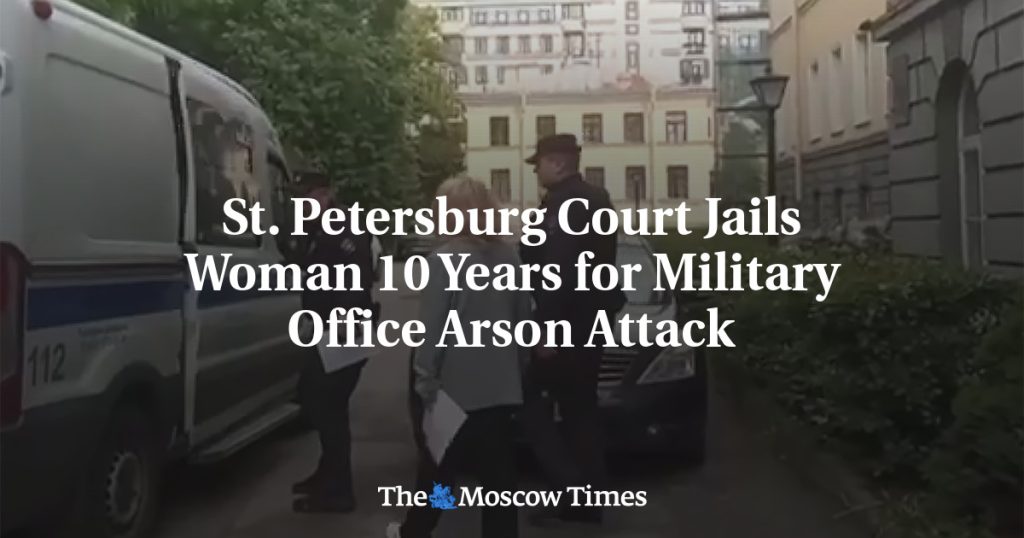A Russian woman, Elena Komaricheva, was sentenced to 10 years in prison by a military court in St. Petersburg for throwing a Molotov cocktail at a military recruitment office in September. The court found her guilty of terrorism charges for setting fire to the office, causing property damage and endangering human life. An unidentified person had convinced Komaricheva to commit the act, resulting in damages of around 37,000 rubles. Despite prosecutors requesting a 13-year sentence, the judge ruled for a 10-year prison term for the woman.
According to reports from the independent news outlet RusNews, Komaricheva fell victim to phone scammers pretending to be law enforcement officials. The scammers convinced her that criminals were trying to steal her money and advised her to transfer funds to a supposed safe account. However, she ultimately sent 10 million rubles to this account. Later, the scammers instructed her to bring a Molotov cocktail to an address where they claimed the criminals were staying. She followed their instructions and was arrested at a military enlistment office, although it is unclear if the scammers told her to set fire to the office.
The defense lawyer for Elena Komaricheva plans to appeal the verdict against her, as reported by the independent SOTAvision news outlet. The case has raised questions about the vulnerability of individuals to falling for scams and being manipulated into committing criminal acts. The narrative surrounding the circumstances of this case highlights the potential dangers of fraudulent schemes and the influence they can have on unsuspecting individuals. The appeal process will likely shed more light on the details of the case and potentially bring about a different outcome for Komaricheva.
The verdict against Komaricheva has sparked interest and concern from various news outlets and the public, prompting discussions about the implications of the case and the potential manipulation of vulnerable individuals by scammers. The complex interplay between fraudsters, victims, and criminal acts has drawn attention to the need for public awareness and protection against such schemes. The woman’s conviction and subsequent sentencing have brought attention to the issue of cybersecurity and the importance of educating individuals on how to identify and protect themselves from fraudulent activities.
As The Moscow Times, an independent news source, faces challenges from the Russian government, the support for unbiased reporting and journalism becomes increasingly crucial. The case of Elena Komaricheva serves as a reminder of the importance of upholding journalistic integrity and providing accurate information to the public. The commitment to independent reporting on cases like Komaricheva’s underscores the significance of open and transparent communication in society. Moving forward, efforts to support journalists and maintain the integrity of media outlets like The Moscow Times will be essential in upholding democratic values and promoting freedom of speech.


